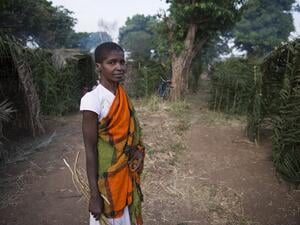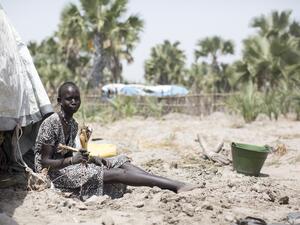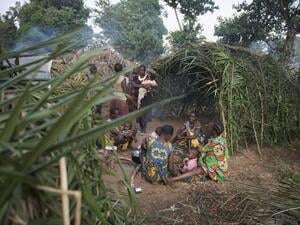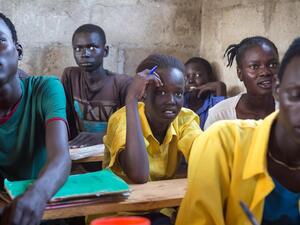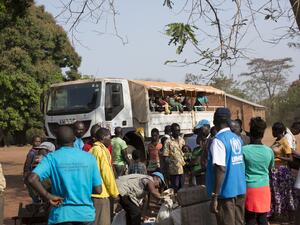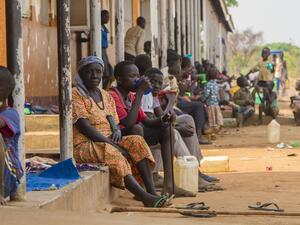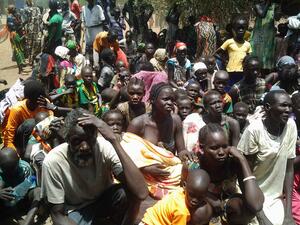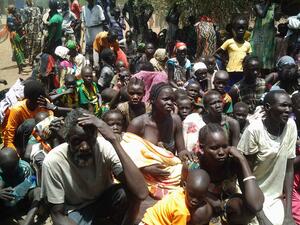UNHCR tackles Hepatitis E outbreak that kills 16 Sudanese refugees
UNHCR tackles Hepatitis E outbreak that kills 16 Sudanese refugees

A Sudanese refugee and her daughter in Gendrassa camp, where one person has died of Hepatitis E.
JUBA, South Sudan, September 14 (UNHCR) - The UN refugee agency is working with the government, the World Health Organization and other partners to control an outbreak of Hepatitis E that has killed 16 refugees in three camps in South Sudan.
Measures being taken include improving sanitation in the camps, increasing the amount and availability of safe drinking water and promoting improvements in personal and community hygiene practices in all the South Sudan camps.
Messages to refugees focus on personal protection against contracting the virus by not drinking untreated water, not eating raw food or food washed in unclean water, and by not washing in communal containers. Good practices are encouraged, including hand washing, not defecating in the open and not letting animals defecate close to homes.
A UNHCR spokesman, Adrian Edwards, said there had been 23 confirmed cases of Hepatitis E in the Jamam, Yusuf Batil, Gendrassa and Doro camps, which are all located in Upper Nile state's Maban County.
He said that Médecins Sans Frontières-Holland first began tracking patients from Jamam refugee camp with acute jaundice syndrome in late July. Jaundice can be one symptom of Hepatitis E, which is a virus that damages the liver. It is transmitted by eating food or drinking water contaminated with faecal matter.
Of the 16 deaths, 13 have occurred at Jamam, home to about 20,000 refugees, and where 255 cases of acute jaundice syndrome have been recorded. Two people died at Yusuf Batil, home to 37,000 refugees, and where 77 refugees have come down with acute jaundice syndrome.
The other death was recorded at Gendrassa, where 10,000 refugees live and where 52 people have been diagnosed with acute jaundice syndrome. In Doro camp, which shelters 43,000 refugees, one case of Hepatitis E has been diagnosed, but no deaths. This refugee came to Doro from Jamam already ill. So far there have been no cases among the local population.
"Hepatitis E affects people between the ages of 15 and 40 hardest. In the three camps where we see refugees with acute jaundice syndrome, more than half are between 20 and 39," Edwards said. Hepatitis E is particularly dangerous for pregnant women; their death rate can be 20-25 per cent. Five pregnant women were among the 16 people who have died.
One of the major health challenges has been flooding and use of contaminated surface water for drinking. These are being addressed.
There are almost 170,000 Sudanese refugees in South Sudan, including about 105,000 in Upper Nile state and 64,500 in Unity state.

